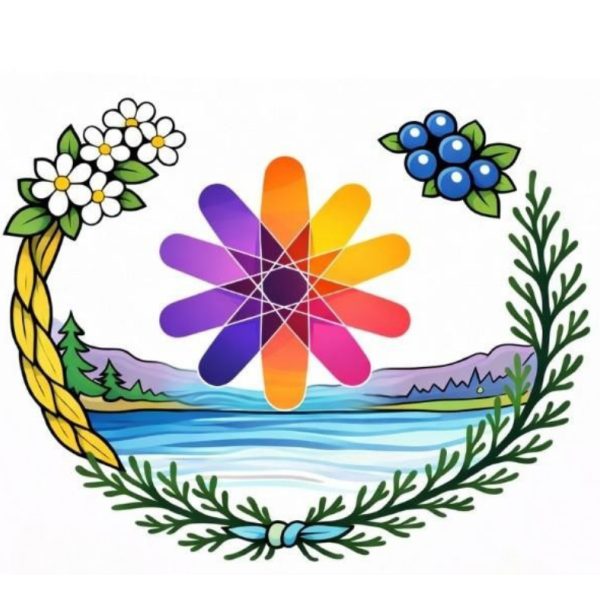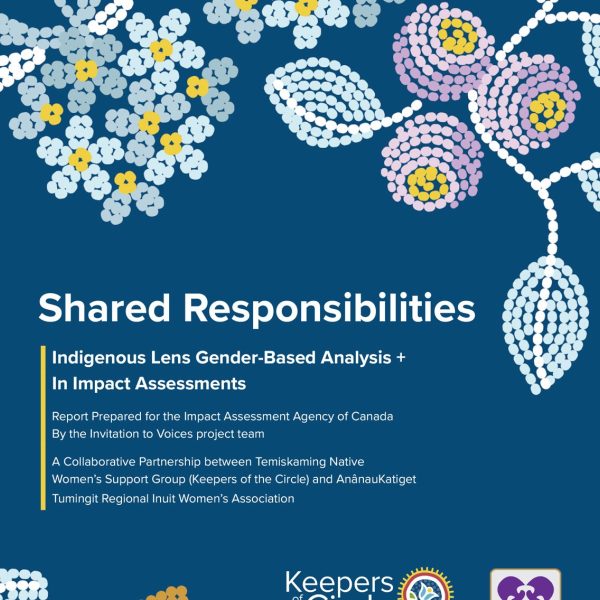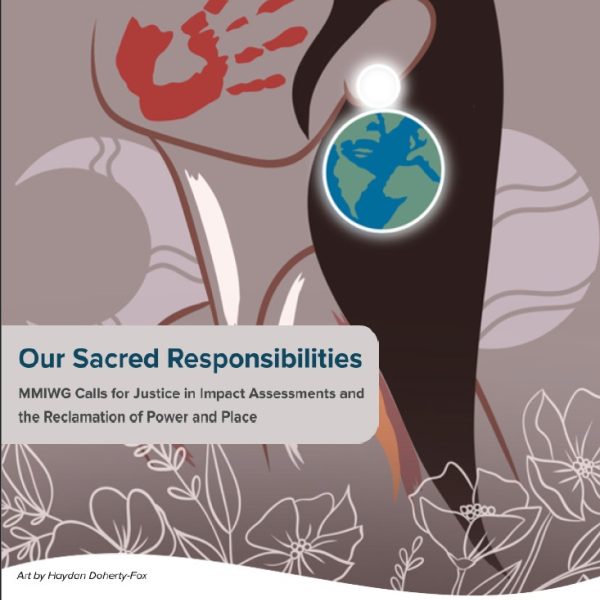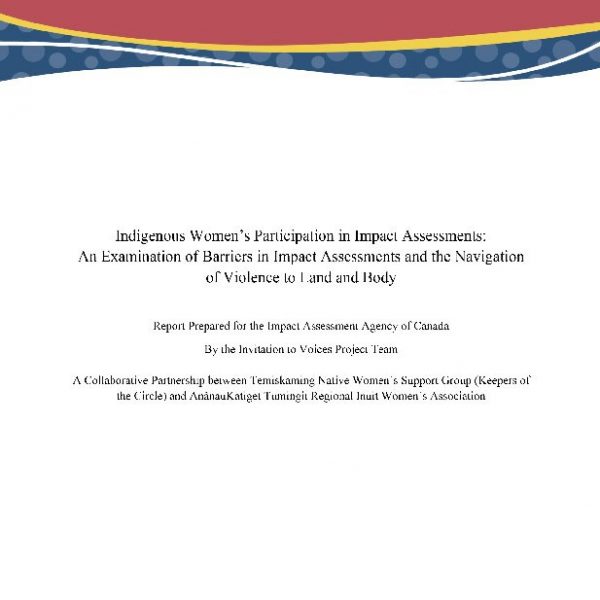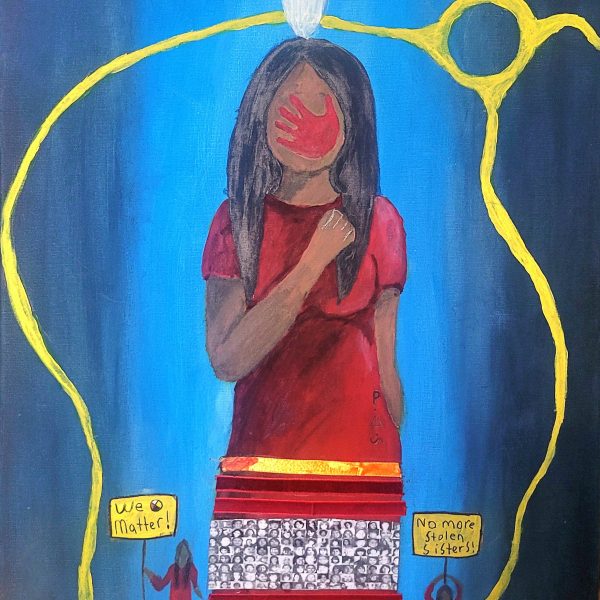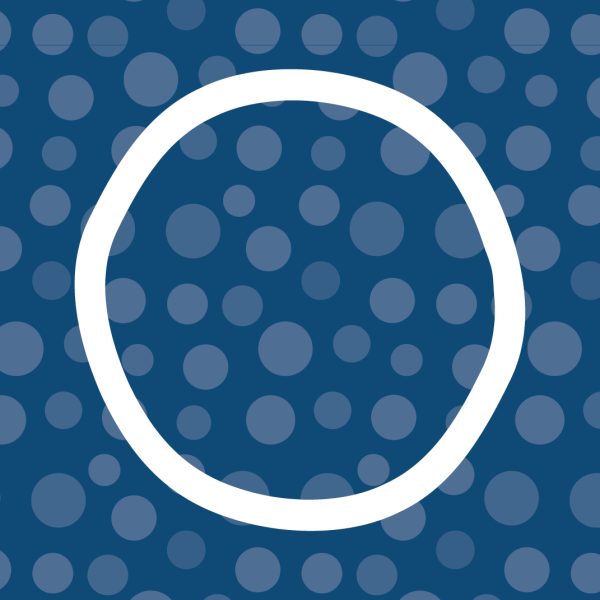Empowered Voices Project
The Empowered Voices Project advocates for Indigenous women and 2SLGBTQQIA+ voices and usage of gender-based analysis plus in federal impact assessments. The goal of the project is to promote long-term, consistent IA participation that is informed directly by grassroots Indigenous women and gender diverse peoples, led by a network of female leaders in their respective communities. We work in collaboration to deliver our training programs and knowledge sharing events, and to facilitate a community engaged research project to co-develop guidance documents for developers and communities to support EDI and CRGBA+ tools to implement in order effect better outcomes for historically marginalized groups.
This is a project funded by the Impact Assessment Agency of Canada since 2020, led Keepers of the Circle in collaboration with AnânauKatiget Tumingit Regional Inuit Women’s Association and British Columbia Native Women’s Association.
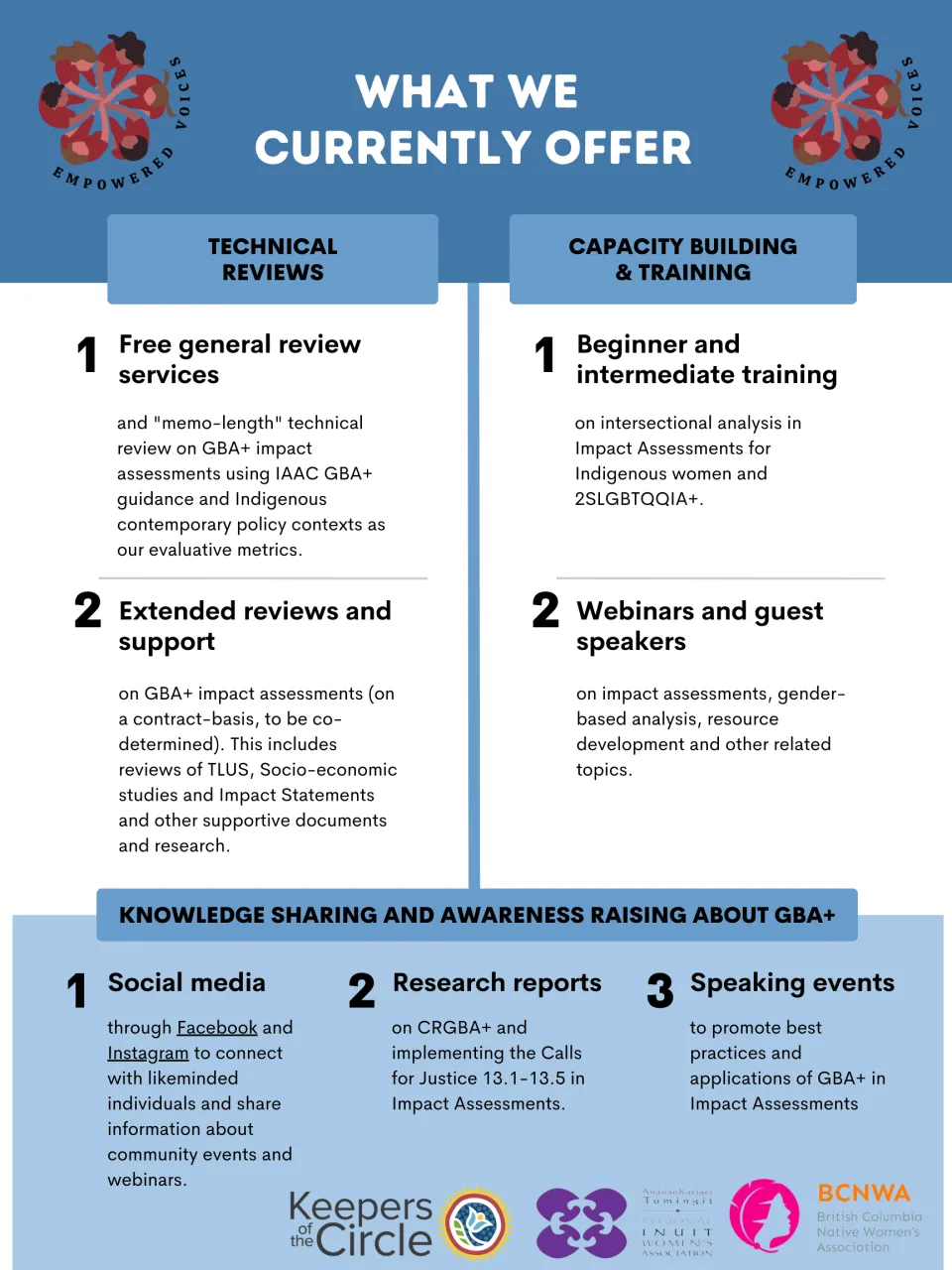
Resources
If you’re interested in any of these publications or products, connect with us and we would be happy to organize a workshop or private meeting to begin collaborating!
Keepers of the Circle is pleased to promote the Gender Based Indigenous Intersectional Impact Assessment Network. The Network is hosted by Canadian Research Institute for the Advancement of Women (CRIAW) and jointly operated and publicized by CRIAW-ICREF and the Live Work Well Research Centre at the University of Guelph. Becoming a member is free and allows users to access a wide range of publications and materials about Gender Based Analysis Plus.
Join the GiiiA Network: https://giiianetwork.ca/
Our Publications
Our Services
Our Previous Engagements
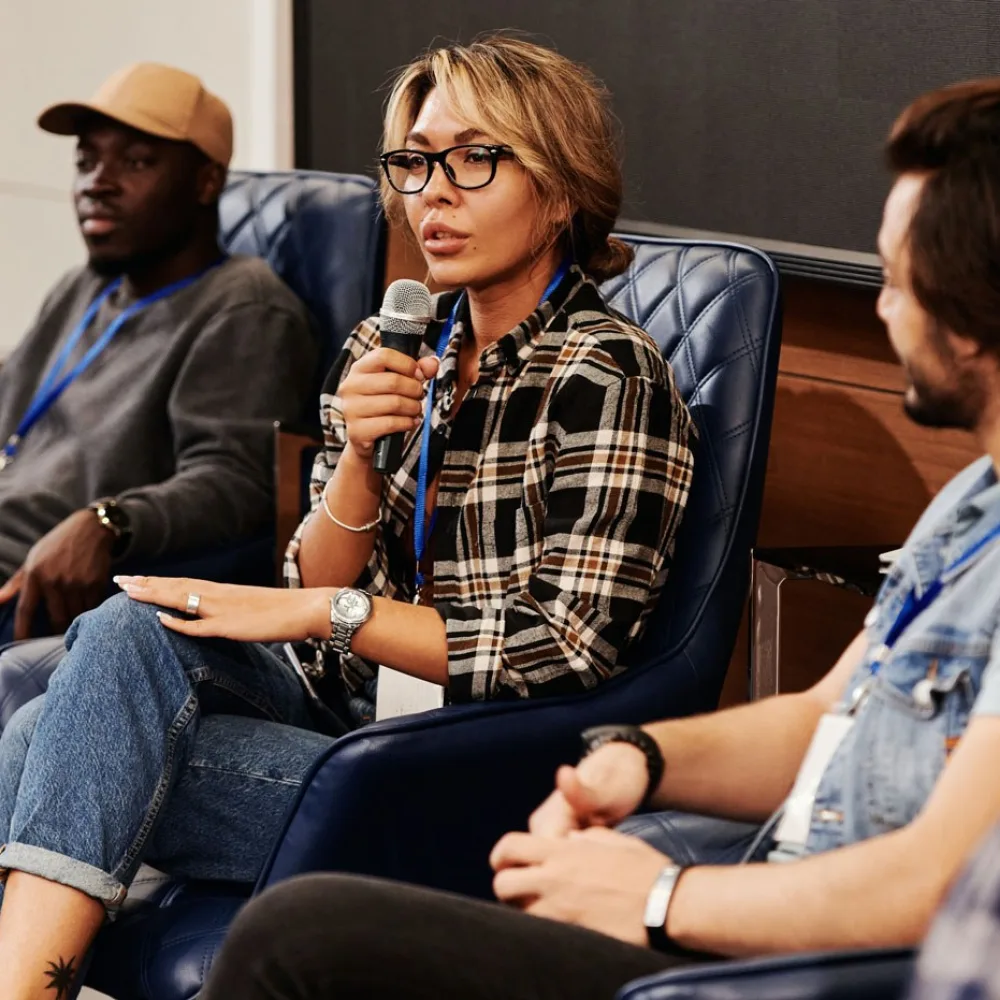
We have spoken at a wide range of international and local conferences, national events, and regional workshops on impact assessment, resource development, GBA+, and the MMIWG Calls for Justice. Highlights include the Indigenous Center for Cumulative Effects Conference (ICCE), the Secure Indigenous Land Tenure Association (SILTA), and the International Association for Impact Assessment Conference, among others. We have delivered presentations and sat on panels for various impact assessment agencies and associations and have also been invited as guest lecturers at post-secondary institutions such as Trent University and Acadia University.
Invitation to Voices Project
The Invitation to Voices Project was our first initiative, designed to support Indigenous women and girls in building the confidence and capacity to participate in land-use planning. Indigenous women carry vital knowledge of land stewardship practices, passed down through generations, yet this knowledge is often excluded from federal environmental impact assessment protocols and decision-making. Our goal was to strengthen the ability of Indigenous women and girls to meaningfully contribute to impact assessments in Canada and beyond. The project brings marginalized voices to the table—supporting them in sharing knowledge, protecting culture, and advancing reconciliation and cultural resurgence.
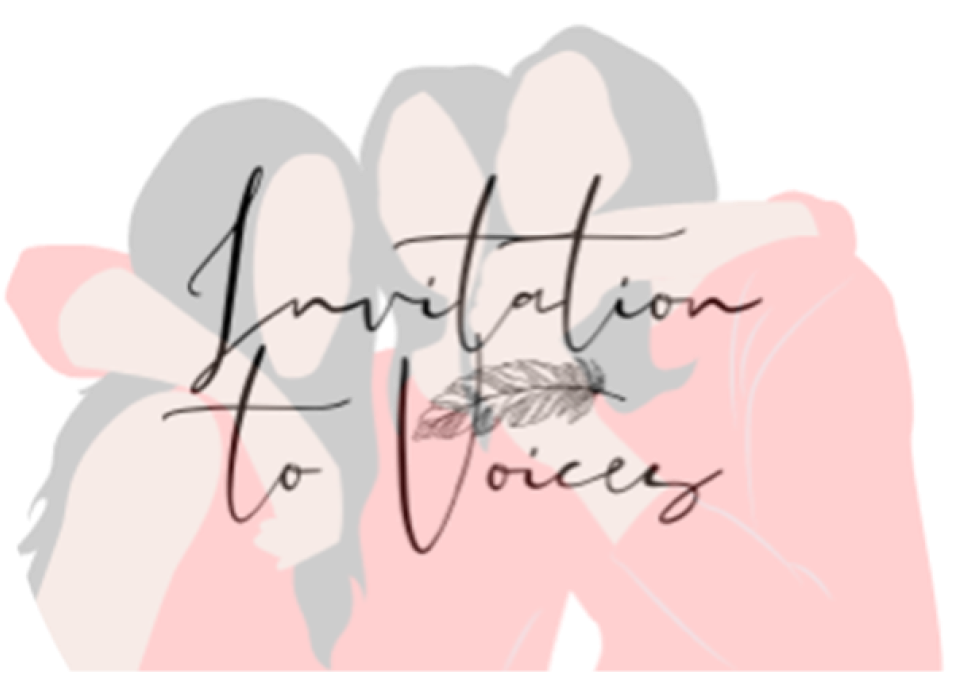
Upcoming Events
Outlining upcoming cohorts, monthly coalition meetings, IAAC engagement deadlines, IAAC engagement sessions, external training opportunities, etc. updated regularly.
